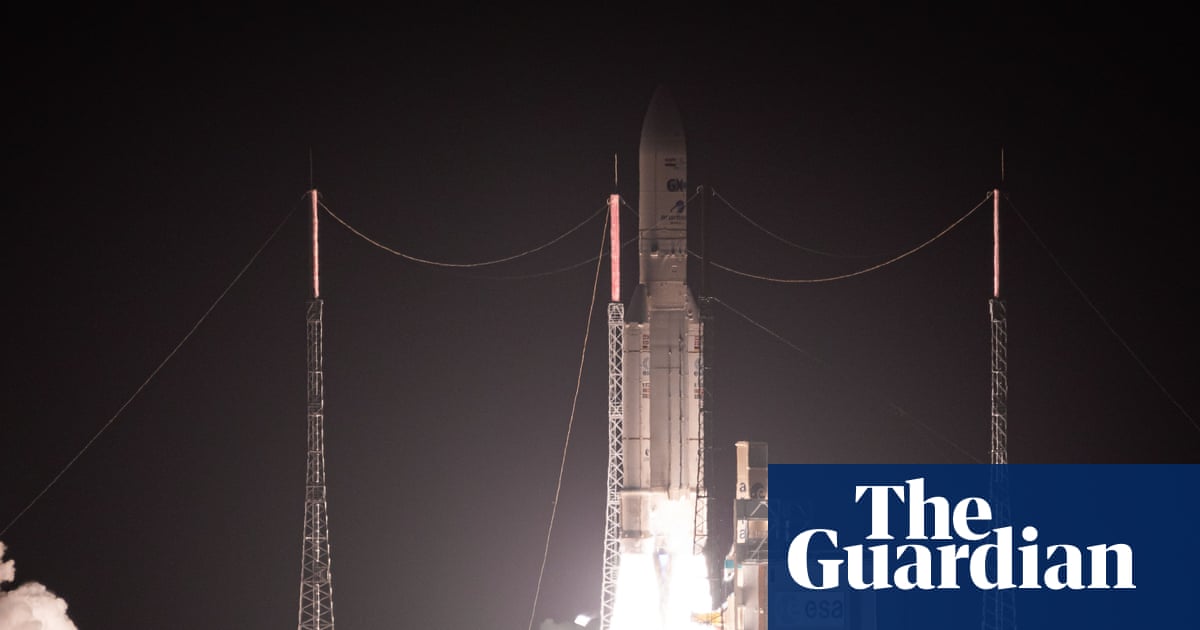Oil price jumps after US sanctions Russia's Rosneft and Lukoil
The oil price has jumped after the US has sanctioned Russia’s two largest oil companies to increase pressure on the Kremlin to negotiate an end to its war against Ukraine.
The White House’s new measures against Rosneft and Lukoil are the US’s first sanctions against Russia since Trump’s return to office in January. All assets belonging to the two companies in the US have been frozen, and US companies and individuals will be barred from doing business with them.
Significantly, the US is also threatening secondary sanctions on foreign financial institutions that do business with Rosneft and Lukoil – which could include banks that facilitate sales of Russian oil in China, India and Turkey.
India state refiners are reported to be reviewing their purchases of Russian oil barrels to ensure that no supply will be coming directly from Rosneft and Lukoil.
Following the US move, Brent crude is up 3.8% at $64.95 per barrel, on top of a 2% rise on Wednesday.
That lifts the oil price away from the five-month low of $60 hit on Monday, which had fuelled hopes that inflationary pressures were easing.
Key events Show key events only Please turn on JavaScript to use this feature
Europe adopts 19th sanctions package against Russia, including LNG import ban
The European Union is also tightening the screws on Russia’s energy economy.
EU countries have formally adopted a 19th package of sanctions against Russia for its war against Ukraine that includes a ban on Russian liquefied natural gas imports.
The package was approved last night after Slovakia dropped its block.
The EU’s LNG ban will take effect in two stages, Reuters reports:
Short-term contracts will end after six months and long-term contracts from January 1, 2027. The full ban comes a year earlier than the Commission’s proposed roadmap to end the bloc’s reliance on Russian fossil fuels.
The new EU package also adds new travel restrictions on Russian diplomats and lists 117 more vessels from Moscow’s shadow fleet, mostly tankers, bringing the total to 558. The listings include banks in Kazakhstan and Belarus, the [EU] presidency said.
Here’s Deutsche Bank strategist Jim Reid on the jump in the oil price:
Overnight, the biggest market move has come from oil prices, after the US Treasury announced sanctions against Russia’s two largest oil companies, citing “Russia’s lack of serious commitment to a peace process to end the war in Ukraine”.
These are the first material US sanctions against Russia introduced since Trump re-entered the White House in January and mark a sharp shift in tone compared to a week ago, when the two sides had talked about a possible meeting in Budapest between Trump and Putin.
And with increased risks of oil supply disruption, Brent crude is +3.10% higher overnight at $64.53/bbl, extending a +2.07% gain yesterday, which if sustained would be its biggest 2-day jump since July.
Oil price jumps after US sanctions Russia's Rosneft and Lukoil
The oil price has jumped after the US has sanctioned Russia’s two largest oil companies to increase pressure on the Kremlin to negotiate an end to its war against Ukraine.
The White House’s new measures against Rosneft and Lukoil are the US’s first sanctions against Russia since Trump’s return to office in January. All assets belonging to the two companies in the US have been frozen, and US companies and individuals will be barred from doing business with them.
Significantly, the US is also threatening secondary sanctions on foreign financial institutions that do business with Rosneft and Lukoil – which could include banks that facilitate sales of Russian oil in China, India and Turkey.
India state refiners are reported to be reviewing their purchases of Russian oil barrels to ensure that no supply will be coming directly from Rosneft and Lukoil.
Following the US move, Brent crude is up 3.8% at $64.95 per barrel, on top of a 2% rise on Wednesday.
That lifts the oil price away from the five-month low of $60 hit on Monday, which had fuelled hopes that inflationary pressures were easing.
Asian markets retreat as US considers software curbs on China
Good morning, and welcome to our rolling coverage of business, the financial markets and the world economy.
Trade worries have resurfaced after the Trump administration confirmed it is considering new restrictions on software exports to China.
The possible restrictions could cover a wide range of software-powered exports to China, from laptops to jet engines, in retaliation for the clampdown on rare earth exports to the US.
This would open up another flank in the US-China trade war, undermining hope that Washington and Beijing could succeed in cooling the situation.
US Treasury Secretary Scott Bessent has told reporters that “Everything is on the table,” later when asked about limits on software exports to China, after Reuters reported the plan.
Bessent explained:
“If these export controls, whether it’s software, engines or other things happen, it will likely be in coordination with our G-7 allies.”
This suggestion has knocked markets across the Asia-Pacific region today – China’s CSI 300 index has lost 0.75%, while South Korea’s KOSPI 200 is down almost 1%.
The agenda
-
11am BST: CBI industrial trends
-
1.30pm BST: Chicago Fed National Activity Index
-
2pm BST: Bank of England’s Swati Dhingra speech at the Central Bank of Ireland ESCB Cluster 2 academic conference
-
2.30pm BST: Bank of England’s Jonathan Hall speech on “Balancing financial stability and growth: the BoE Financial Policy Committee’s mandate and the search for a social optimum”

.png) 4 hours ago
6
4 hours ago
6

















































